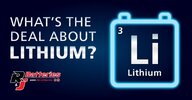- Joined
- 28 August 2022
- Posts
- 7,529
- Reactions
- 12,360
Long haul Peth to Adelaide, Melbourne, Sydney, Brisbane mostly 2-up drivers.Most long haul happens between the cities on major freeways with single drivers.
Been there done that. Non stop except for comfort stop. 5 mins. Eat on the go. Sleep 5 hours, and drive 5 hours



